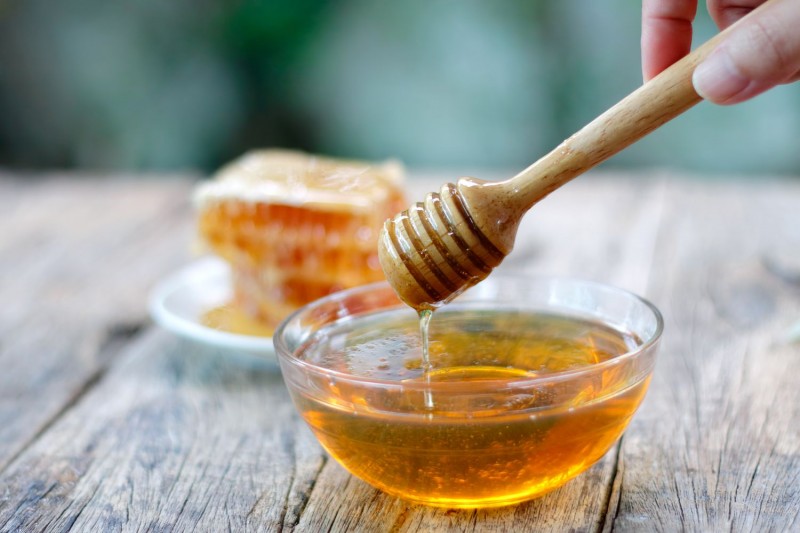
Diabetes, a chronic metabolic disorder characterized by high blood sugar levels, has become a global health concern with an increasing prevalence. People with diabetes often have to carefully manage their diet to maintain stable blood sugar levels and prevent complications. In this context, the question arises: Is it right to consume honey in diabetes? Honey, a natural sweetener derived from the nectar of flowers, has been used for centuries as a food and medicine. Its potential benefits and drawbacks for individuals with diabetes have sparked considerable debate within the medical and nutritional communities.
Honey Composition and Nutritional Profile:
Honey is a complex mixture of sugars, including glucose and fructose, as well as water, vitamins, minerals, and small amounts of other bioactive compounds such as enzymes and antioxidants. Its exact composition can vary based on factors like floral source and processing methods. In terms of nutritional content, honey is often considered more nutrient-rich than refined sugar, containing trace amounts of vitamins (B complex, vitamin C, and vitamin D) and minerals (iron, calcium, and magnesium). It also boasts antioxidants like flavonoids and phenolic acids, which have been linked to potential health benefits.
Effects of Honey on Blood Sugar Levels:
For individuals with diabetes, managing blood sugar levels is crucial to avoid complications. Honey's glycemic index (GI) is higher than that of table sugar, indicating that it can cause a rapid increase in blood glucose levels. However, its impact on blood sugar may vary depending on the amount consumed, the individual's overall diet, and their glycemic control. Some studies suggest that consuming small amounts of honey may have a milder impact on blood sugar levels compared to equivalent amounts of refined sugar. Additionally, honey contains fructose, which has a lower GI than glucose and might have a less pronounced effect on postprandial glucose levels.
Potential Health Benefits of Honey Consumption:
Antioxidant Properties: The antioxidants present in honey could potentially help reduce oxidative stress and inflammation, which are commonly associated with diabetes-related complications.
Wound Healing: Honey's antimicrobial properties have been studied for their potential to aid in wound healing, which could benefit individuals with diabetes who are more susceptible to foot ulcers and other skin issues.
Cough and Cold Relief: Honey's use as a natural remedy for soothing coughs and sore throats can be beneficial for individuals with diabetes who need to avoid certain over-the-counter medications.
Gut Health: Some research suggests that honey might have a positive impact on gut health by promoting the growth of beneficial gut bacteria.
Considerations and Precautions:
Portion Control: Given honey's potential impact on blood sugar levels, portion control is crucial. Moderation is key, and individuals with diabetes should work with a healthcare professional to determine suitable serving sizes.
Individual Responses: Each person's response to honey can differ. Some individuals might tolerate small amounts of honey without significant blood sugar spikes, while others may need to avoid it altogether.
Monitoring: Regular blood sugar monitoring is essential when introducing honey into the diet. This helps individuals understand how their bodies react and make informed decisions based on real-time data.
Consultation with Healthcare Professionals: Before making any significant dietary changes, especially for individuals with diabetes, it's crucial to consult with a registered dietitian or healthcare provider to ensure that the decision aligns with the individual's overall health and diabetes management plan.
The question of whether it's right to consume honey in diabetes doesn't have a simple answer. Honey's unique composition and potential health benefits have led to ongoing discussions about its role in a diabetes-friendly diet. While honey does offer some potential advantages, it's important to approach its consumption with caution. Moderation, individualized considerations, and guidance from healthcare professionals are crucial factors when deciding whether to include honey in a diabetes management plan. As the field of nutrition and diabetes management continues to evolve, more research is needed to better understand how honey can fit into the overall dietary strategies for individuals with diabetes.
Fertilizers for Kharif Planting; States Urged to Counter Urea Diversions: Mandaviya
Health Benefits of Bhutta During Rainy Days: 8 Reasons to Enjoy Corn Daily